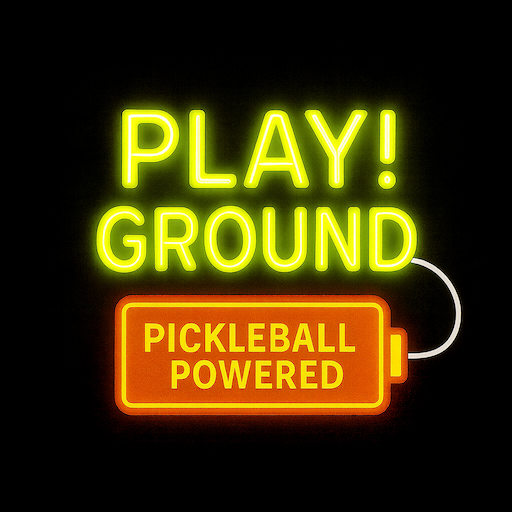Why Workshops and Team-Building Events Are the Future of B2B Marketing
In the evolving landscape of B2B marketing, traditional methods are gradually giving way to more interactive and engaging strategies. In today’s competitive business environment, simply relying on conventional seminars, emails, and advertisements is no longer enough to build lasting connections or create a meaningful impact. At Play! Ground, we firmly believe that workshops and team-building events are not merely trends, they represent the future of B2B marketing. By offering experiential and hands-on engagement, these approaches allow businesses to form authentic relationships, enhance brand presence, and drive long-term value. Here’s why they are increasingly indispensable for modern businesses:
1. Fostering Genuine Connections
Workshops and team-building events offer an unparalleled opportunity for businesses to connect on a deeper level. Unlike traditional lectures or presentations where information flows one way, these interactive sessions encourage collaboration and open dialogue. Participants engage in problem-solving exercises, creative challenges, and shared activities that foster trust and mutual understanding. For example, a corporate workshop designed around strategic innovation might bring together employees from different departments, enabling cross-functional teamwork and breaking down silos. Such experiences not only strengthen professional relationships but also create a sense of community among participants, which can have long-lasting effects on partnerships, client relationships, and internal cohesion.
2. Enhancing Brand Visibility
Beyond relationship-building, these events provide an effective platform for brands to demonstrate thought leadership and expertise. Hosting a well-curated workshop allows businesses to present their insights, innovative solutions, and unique perspectives directly to their target audience. For instance, a company specializing in digital transformation could lead a session where participants explore new technologies and trends, positioning the brand as a knowledgeable authority in the field. Active participation in industry-specific events also increases exposure to potential clients and partners, making it easier to leave a lasting impression. Moreover, sharing highlights, takeaways, and behind-the-scenes moments on social media and professional networks further amplifies visibility and credibility.
3. Driving Employee Engagement
While these events are often externally focused, their impact internally cannot be overstated. Team-building initiatives are a strategic tool to boost employee morale, foster a positive corporate culture, and nurture collaboration. Engaged employees are not only more productive but also more motivated to contribute creatively to business objectives. Activities such as problem-solving challenges, experiential learning sessions, and role-playing exercises help employees build critical soft skills like communication, leadership, and empathy. Over time, this heightened engagement translates into improved performance, higher retention rates, and an empowered workforce that actively contributes to organizational success.
4. Leveraging Technology for Hybrid Experiences
The integration of technology into workshops and team-building events has unlocked new possibilities for reaching wider audiences. Hybrid events combine in-person participation with virtual access, allowing businesses to connect with clients, partners, and employees regardless of geographic location. Digital tools such as live polling, interactive Q&A sessions, virtual breakout rooms, and gamified experiences can enhance engagement and ensure that remote participants feel equally involved. This flexibility not only broadens the audience base but also demonstrates a brand’s adaptability and commitment to innovative solutions, appealing to modern professionals who value convenience and accessibility.
5. Measuring Impact and ROI
One of the key advantages of modern experiential events is the ability to track performance and measure return on investment. Advanced platforms now provide tools to gather detailed feedback, monitor engagement levels, and analyze participant behavior during workshops and activities. Businesses can assess which elements resonated most, identify opportunities for improvement, and quantify the value generated from these initiatives. Data-driven insights enable companies to refine their strategies and demonstrate tangible results to stakeholders, making experiential marketing a smarter, more accountable investment compared to traditional methods.
Conclusion
At Play! Ground, we understand the transformative power of interactive experiences in B2B marketing. Workshops and team-building events are not just tools, they are strategic investments that help businesses forge stronger relationships, showcase expertise, enhance brand visibility, and cultivate a motivated and engaged workforce. By integrating these experiential approaches into your marketing strategy, your organization can stand out in a crowded marketplace, build meaningful connections, and create a lasting impression on clients and employees alike. Whether you are looking to host a dynamic workshop, a collaborative team-building session, or a hybrid experience that combines the best of in-person and virtual engagement, the opportunities to elevate your brand are endless. Let’s work together to create experiences that inspire, connect, and drive measurable results. Your next B2B marketing strategy doesn’t just have to inform, it can excite, engage, and leave a lasting impact. Are you ready to transform the way your business connects and grows? Let’s make it extraordinary.


